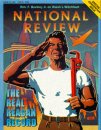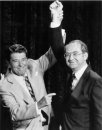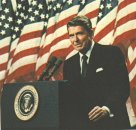
(home)




The Case Against Cold, Hard Cash
 By Robert Schiener
By Robert SchienerCan we ever rid the notion of crime from humanity? Is it possible to increase or decrease its frequency on our soil? Sure. Many experts, however, have argued the premise that crime is quite constant and revolves around a natural trend, or percentage, since noneffective controls to combat crime have been the norm rather than the exception during the course of human history. Could we, as an innovative human race who has combated polio, combated the final frontier, and combated socialism develop an effective means to reduce crime? Sure. The answer may derive from the eradication of currency, or cold, hard cash.
So you ask, "How will the disappearance of paper currency help humanity?" As I see it, it is a potential proposal that necessitates both curiosity and investigation in order to evaluate such action which maximizes potential utility.
Specifically, take facts from economics. Currently, the M1 money supply, which denotes the quantity of physical currency in the economy, averages approximately $1,500 per person (excluding demand deposits). That money is not in the bank. That money is not in Microsoft or Treasury Bills. That money is either hidden under your mattress or is stuffed in your wallet. Now, how many individuals do you associate with carry such an exorbitant amount of wealth with them. Hopefully very few. For indeed, those who carry such a high quantity of dollars are mostly unfamiliar with the IRS, yet familiar with the drug trade.
Ask yourself, "If currency ceased to exist tomorrow, how would that action have an impact on the drug trade?" Remember: cold, hard cash is liquid, meaning it is readily convertible to purchasing power which criminals crave for. Well, it is certainly feasible that they could utilize less liquidable methodology such as checking accounts and could also exchange hard assets like property. But checking accounts leave tangible clues and tracks behind; drug dealers will avoid such conspicuous consequences. Exchanging property, as a second option, is tiresome and not as feasible as theory may lead one to believe. Indeed, the primary reason why currency was initially invented was to alleviate the means of exchange dilemma.
This idea of suppressing the drug trade correlates very strongly with suppressing other mischievous acts. Many reports indicate a correlation rate of up to 50 percent with regards to theft, murder, and neglect of children as a result of illicit drug consumption. Thus, if the aforementioned proposal to rid our soils of cold, hard cash could become reality, society may indeed witness a decrease in aggregate crime.
Whether or not crime is a constant variable or whether it can be decreased due to external measures remains to be seen. The idea of substituting green paper with green plastic (if you prefer American Express) is one worth pondering. An enhanced version of debit cards with a sensory electronic database containing one's fingerprints as a means of identification might work also. As the most technologically advanced nation in the world, we ought not let ignorance and hesitation stand as an impediment toward realizing rational expectations of friendly neighborhoods and safe schools. As Edison himself stated, "It merely begins with an idea."


Eric Seymour






